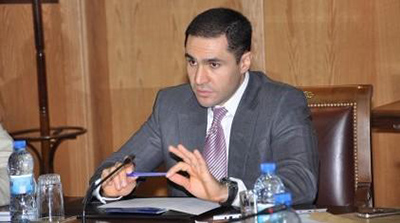In an attempt to support the government’s efforts to alleviate the repercussion of the current crisis in Syria, the Federation of Syrian Chambers of Industry (FSCI) has recently submitted a draft law to the Prime-Ministry providing for the establishment of the ”National Fund for Social Development”.
Chairman of (FSCI ) Fares Al-Shehabi said in a statement to the press that ”in the light of the extraordinary circumstances, Syria has been facing, it is the human and national duty of all industrialists and trades to bolster their cooperation and enhance their fundamental role in helping the national economy work out a strategy to withstand current challenges and reconstruct Syria”.
Al-Shehabi added the (FSCI) spares no effort to support industrialists in implementing new projects in all domains to contribute to rebuilding Syria.
He urged industrialists to contribute to reconstructing schools as well as service and health centers and to benefit from direct investments in vital utilities so as to achieve sustainable social development.
Regarding the fund’s budget, Al-Shehabi clarified the Government’s contribution is 50% and the other 50% is due to be covered by the private sector. International commissions may also contribute to the budget.
The draft law aims at encouraging industrialists working in different sectors to participate in the national fund so as to back the government’s efforts to rehabilitate the infrastructure, create job opportunities and qualify national cadres.
It called for bringing terrorism-affected families back to their houses, reconstructing damaged establishments, ensuring health services and encouraging stopped industrial facilities to launch alternative activities which can be of great economic feasibility.
The fund’s investment fields are due to cover schools, education institutions, hospitals, health centers and housing areas, in addition to afforestation activities, sewage, communication and transportation means.
The draft law stressed the pivotal role of the fund in fixing tourism facilities, drawing up plans to preserve the Syrian cultural heritage, qualifying national experts to implement various activities in different domains to alleviate the deteriorated situation in Syria due the foreign-backed armed terrorists groups’ hostile acts.
Other headquarters for the fund are due to be opened in main provinces to tackle the indirect results of the ongoing crisis in Syria including increasing poverty, unemployment, the stopping of schools, high prices and the lack of goods in markets.
Rawaa Ghanam

